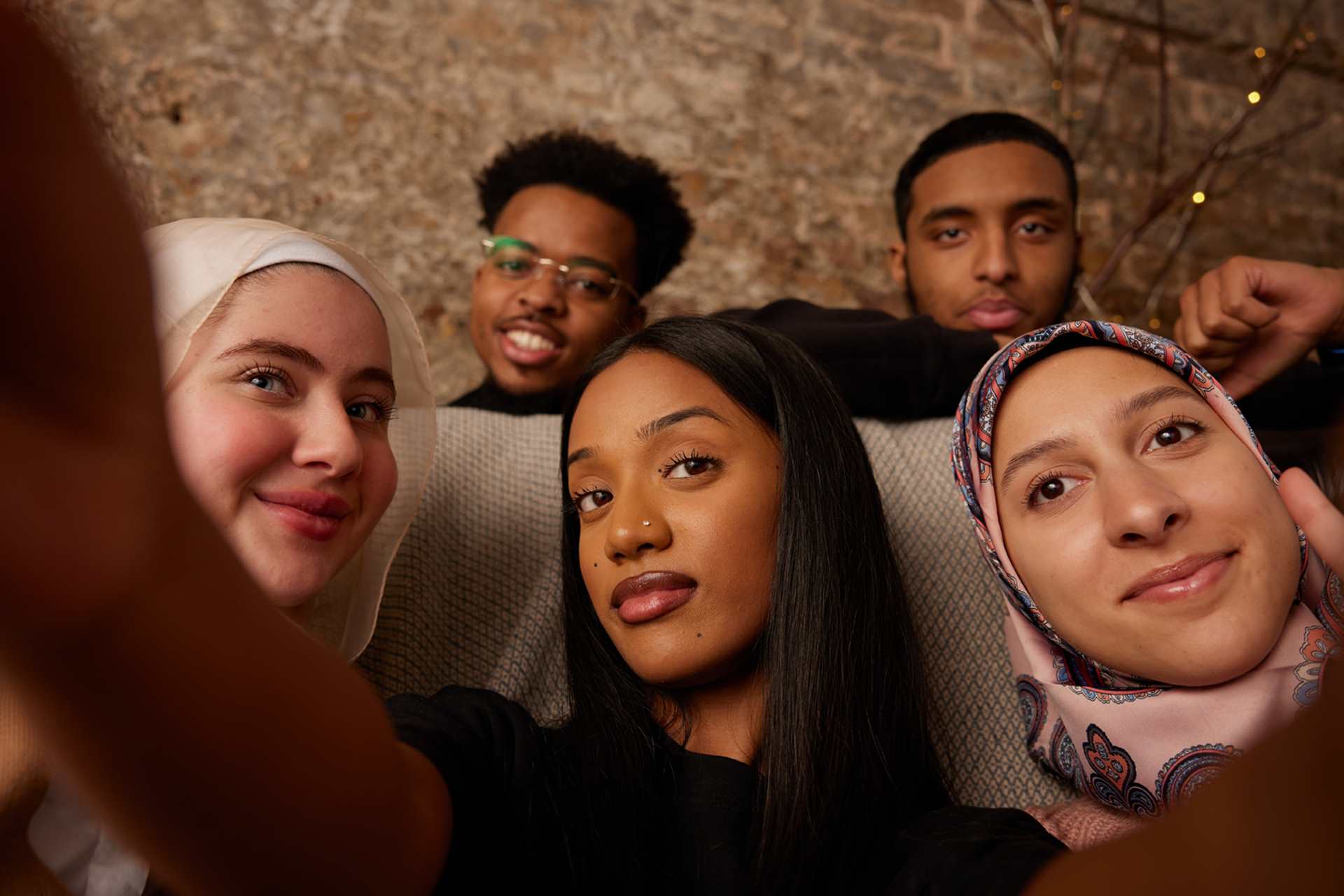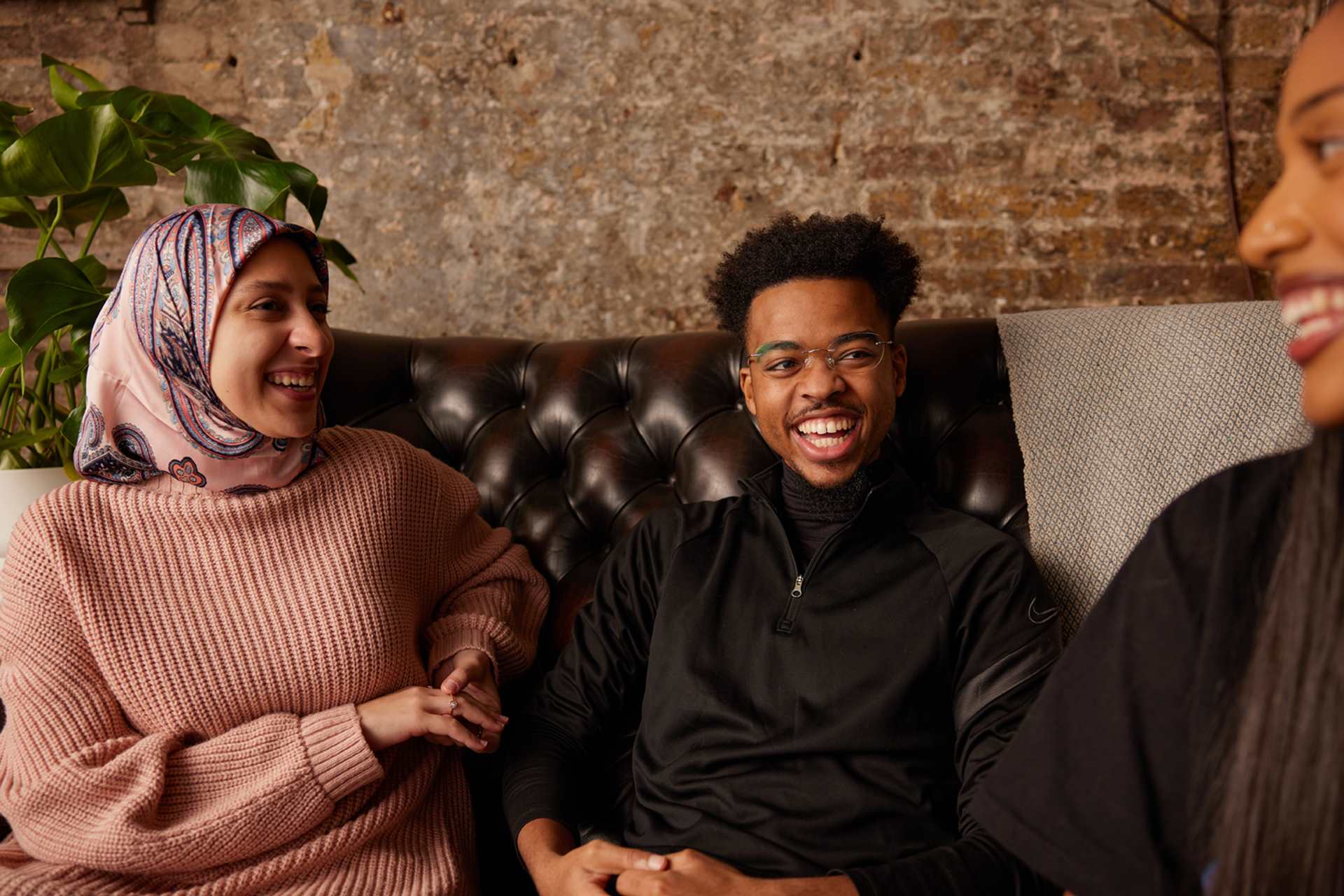Topics mentioned: Muslim mental health, family
About: Shah describes his experience of opening up about mental health as a young Muslim man, and shares his advice on overcoming the challenges of generational differences.
During times when I’ve struggled with my mental health, the thing I’ve needed the most was someone who could empathise with what I was going through as a Muslim.
Being a young Muslim is part of my personal identity. My faith keeps me grounded and focused on living a lifestyle that is healthy, progressive, self-actualising, and it helps me to improve myself in all aspects of my personal being.
I believe Islam teaches a lifestyle that promotes core family values, community networking, and it reminds us to refrain from activities and behaviours that would be detrimental or damaging. Not only to ourselves and our health, but also to the people around us.
During times when I’ve struggled with my mental health, the thing I’ve needed the most was someone who could empathise with what I was going through as a Muslim.
I’ve had to deal with stereotypes and expectations within my own community and network, especially from my family. Sometimes I’ve felt isolated, and I learned the hard way that there was a stark difference in attitudes towards mental health between my generation and the previous one.
I was also raised to fulfil certain duties and maintain certain standards for my family’s reputation and the opinion of others in the community.
The pressures of family reputation and generational differences
I’ve grown up within an environment where mental health is hardly ever properly addressed. There would be times when my older uncles and aunts would refuse to acknowledge that I was going through difficult moments.
I was also raised to fulfil certain duties and maintain certain standards for my family’s reputation and the opinion of others in the community. I’ve realised that the two go hand in hand sometimes.
I suffered in silence quite a lot, as I found myself dealing with toxic friends, colleagues and overall terrible people to be associated with. I was stuck in a whirlwind of struggling, and not knowing where to go for help.
From that point on, I never opened up about my mental health or experiences again without first finding out the other person’s understanding of mental health.
I was around 22 when I first explained to someone that I’d quit my job as I felt it was draining my mental health and making me live a very destructive lifestyle.
For me, it took only this one instance of my mental health concerns being dismissed, for me to realise that my way of thinking was very different to older relatives in my family. From that point on, I never opened up about my mental health or experiences again without first finding out the other person’s understanding of mental health.
I’ve never been willing to accept that a person should allow themselves to suffer just because it was ‘expected’ of them to simply put up with it.
They‘d also been told to ‘suck it up’ or ‘man up’ and ‘get on with life’, instead of having their concerns properly addressed.
Over time, things did change within my extended family. Relatives have slowly become more open and accepting of the struggles that we as humans go through.
I began to find it easier to open up to people about not only my identity as a Muslim, but also concerns I had in general, like my career, hobbies and interests, or even something as simple as relationship advice. I also managed to connect with people online who had gone through similar experiences to me.
They'd also been told to ‘suck it up’ or ‘man up’ and ‘get on with life’, instead of having their concerns properly addressed. This helped me to feel less alone.
My advice for young Muslims struggling to reach out for help
-
Talk to someone you trust
I feel like the biggest hurdle to getting help is finding the right pathway to opening up. I’ve learnt that it simply starts with finding someone to talk to who you trust, who you know will show empathy and acknowledge your concerns. They’ll be happy to talk, guide and signpost you towards people and resources that can address and help you to overcome your worries.
-
Understand generational attitudes
My message for other young Muslims is to understand that there is often going to be a difference in attitudes towards mental health between their generation and older generations. The generation before us lived through a different time where certain aspects of society were emphasised and other aspects were ignored. However, as time progresses, attitudes can shift. Please don’t let it get you down.
-
Your mental health comes first
I believe it's really important for us to prioritise our mental health over the reputation of our family, as our lives and survival could depend on it in the end. It only takes one single person to acknowledge what a young person is going through to help them. I’m at the point where it’s a little easier and more straightforward for me to not only open up about my mental health struggles, but also to ensure the other person accepts and respects my viewpoint. Believe me, you’ll get to this point too.
-
Reach out to other young Muslims
Finally, I feel like there’s something special about acknowledging the role that friendship bonds and brotherhood plays in our lives. I’ve met other Muslims who have been open, kind and accommodating. They’d get me involved in fun activities with them, like sports, which always seemed to help. I’ve also come across people who are strong-willed with their faith in the face of adversity, and I was always inspired seeing how it helped them. Hopefully one day, I can be that person for someone else too.
More information and advice
We have tips and advice to help you find the support you need. Take a look at our guides.
Where to get help
However you're feeling, there are people who can help you if you are struggling. Here are some services that can support you.
-
Muslim Youth Helpline
Provides faith and culturally sensitive support for young Muslims.
Online chat service available during opening hours.
- Opening times:
- 4pm - 10pm, 365 days a year
-
Samaritans
Whatever you're going through, you can contact the Samaritans for support. N.B. This is a listening service and does not offer advice or intervention.
- Opening times:
- 24/7






